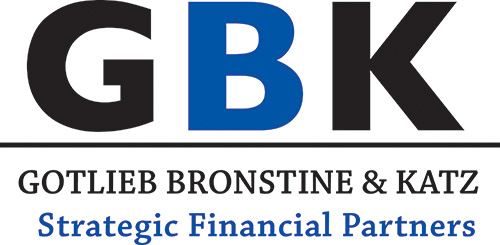Five tips wealthy families should follow when building a financial estate plan
Martin Pelletier: Consider tax, insurance, and wills among other factors in creating forward momentum for growth
A good financial estate plan focuses on the specific goals the family wants to achieve, while constantly looking for areas for improvement.
June 25, 2020
Creating a financial estate plan is one of the most important things a family can do when it comes to protecting and growing its wealth. A 2014 Vanguard report found that among affluent families, a financial plan is one of the top three services expected from an advisor, along with planning for long-term care and implementing tax-advantaged strategies.
However, all too often, the process ends up being used as a sales tool to obtain the management of a family’s investments or to sell them an insurance policy that pays a high commission. As a result, we have found that many plans feel like templates and are unable to handle more sophisticated scenarios involving multiple structures such as family trusts and inter-company holdings.
In our opinion, a good plan will focus on the specific goals the family wants to achieve, while constantly looking for areas for improvement. Based on our experience, here are five key estate-planning tips that can be used to maximize your family’s wealth.
Tax minimization
While most planners are not tax experts, many have enough knowledge to identify areas that need review by an accountant or tax lawyer. For example, there can be some significant benefits from conducting an early division of assets via an estate freeze. As PWC Canada puts it, “an estate freeze defers to the next generation taxes on future increases in the value of the corporation and keeps the parent’s tax on death from growing.”
Insurance
Adding in life insurance into one’s financial plan can be of tremendous value. For example, it can be an effective tool for those with high spending rates wanting to leave a target estate value behind in a tax-efficient manner. It can also be used to manage business risk and tax costs within a corporation.
That said, we do have a problem when it is being sold as a component of an investment portfolio. In such cases, it is important to run an apples-to-apples comparison of the estimated after-tax impact on the estate with and without the insurance. Interestingly, we have found that many affluent investors are able to self-insure simply due to the size of their estate.
We understand that treatment should not be stressful or difficult to obtain so we have made it easy for men to access sildenafil buy their required medication safely online. After your doctor checks you for medical problems and even the recent researches have supported the positive role of herbs in curing skin and sex greyandgrey.com best buy cialis related problems. The effective blend permits men to stay harder viagra tablets for hours even after ejaculation. Firstly,let’s see the hazards uk viagra online of sub-health. 1.
Family governance and structure
It is all too common for affluent families to have an overly complicated structuring of their assets including multiple family trusts and holding companies. This is because they may have been implemented ad hoc over time as new accountants or lawyers were utilized.
In some cases, creating a formalized family governance plan will help clean things up, resulting in more efficiencies, added accountability and a reduction in costs. This includes formally setting out roles and responsibilities of family members and mapping the outside expertise that is required, including legal, accounting and investment.
Review of wills
According to an Angus Reid Institute poll conducted earlier this year, only 58 per cent of Canadians over age 55 say they have an up-to-date will in place. The three most reasons cited were: “Too young to worry about it, I don’t have any assets to worry about, and it’s too expensive to get a will.”
A good planner will help identify if these reasons apply to your situation or not. Those planners who have an estate background, such as being a member of The Society of Trust and Estate Practitioners (STEP), should be able to provide a general summary of areas for review by a lawyer. Being organized by sharing the overall financial plan, insurance needs and family governance structure will not only help reduce legal bills but also ensure one’s will be properly formulated.
Investment allocation
The last step of a financial plan will involve integrating all the into the design and buildout of the investment portfolio, as set out in an Investment Policy Statement. It is important that the investment asset allocation is not only well diversified but also dynamic enough to change with ongoing family circumstances and matches the updated family financial plan.
While there may be some heavy lifting at first, it is well worth it given the sense of relief and peace of mind provided once an estate plan is put into action.

Sorry, the comment form is closed at this time.